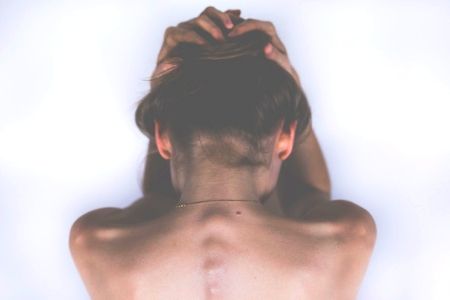
Headaches and migraines can be anything from annoying to debilitating. Although there are many muscles in your neck an upper back that can contribute to headaches, migraines are often caused by other factors such as stress, lack of proper sleep, dehydration, hormones and tight muscles; to name a few.
Our practitioners are able to diagnose the root cause of the issue with a thorough assessment and treat the cause as well as the symptoms.
Diagnosing the cause of headaches and migraines
Our chiropractors would first discuss where the headache is presenting and discuss environmental and lifestyle factors to determine the cause of the headache or migraine. This would then be followed by a physical assessment of muscle tension, range of motion and any light or sound sensitivity.
Stress:
Stress is one of the biggest factors attributed to causing headaches as it often is a symptom of multiple issues compounded together. Too much energy spent, often combined with poor nutrition, maintaining fluid levels and getting proper sleep. All of these factors put stress on your system and can cause the body to be depleted of what it needs to function. A headache is your body’s way of telling you that something is up and you need to take a moment to listen and identify what it needs.
Treatment for headaches caused by stress:
Easier said than done but look at the factors causing stress in your life and see if they can be reduced or eliminated. Work out where in your schedule you can fit in exercise, time for meditation or just some ‘me time’. Ensure you are giving your body the nourishment it needs and address muscle tension by getting a massage or some dry needling to relieve over-active muscles.
Lack of sleep:
Not getting enough or proper sleep (deep sleep, also known as the REM phase of sleeping where your body properly gets to rest) means that your body is unable to ‘reset’. Your body and brain need rest in order to process thoughts into memories, repair and recuperate. Not getting enough sleep will eventually make a headache present, again as a communication from your body telling you to slow down.
Treatment for headaches caused by lack of sleep:
Look at your sleeping environment in detail. Do you have a supportive pillow and a comfortable mattress? Is the room dark and quiet? Is your bedroom child and pet free? Do you have a partner who snores? It is also recommended to limit the time your body is exposed to blue light from tv, table and mobile screens 1 hour before going to bed.
Tight neck muscles due to an un-supportive pillow can be treated with muscle work, prescribed stretches or dry needling (depending on the severity of the issue).

Dehydration:
Your brain is a muscle and in the same way as your muscles get cramps from lack of hydration, a headache is kind of like a cramp in your brain. If you are continuously using the muscle (aka your brain), it stands to reason that you must replenish it with water to allow it to function properly.
Treatment for headaches caused by dehydration:
Keep track of how much water and other liquids you are drinking every day. The World Health Organisation recommends an adult should consume 2 litres per day (more in summer or after exercise). Not only does this keep your body hydrated, it also helps flush out toxins that otherwise are metabolised and get ‘stuck’ in your body.
Receiving treatment for dehydration headaches can involve a deep tissue massage that promotes the body’s flushing out of toxins and replenish with nutrients and H2O.
Hormones:
Generally more so in women than men, hormones play a huge role in how the body functions. Oestrogen is the hormone that is secreted by the brain and responsible for the sensation of pain. In teenagers around the time of a menstrual cycle, pre and post pregnancy, using oral contraception, hormone therapy as well as around the menopause, oestrogen fluctuation in the female body can cause the body to feel pain differently.
Treatment for headaches caused by hormones:
Chiropractors cannot treat the underlying cause for hormonal headaches but can help relieve some of the symptoms. Massage to treat tight muscles in the neck and shoulders, dry needling to release overactive muscles and prescribed stretches can help manage the pain.
If you suspect you or someone you know suffers from hormonal headaches, seek medical advice.
Tight Muscles:
One of the most obvious causes of headaches but often overlooked. Muscle tension that can affect headaches is not limited to neck muscles either. The muscles in your shoulders (trapezius muscles) and the muscles in your jaw connect up to the muscles in the top of your spine (suboccipital muscles). Repetitive motion, “text neck”, poor posture or sleeping position, holding or contracting a muscle for an extended period of time, clenching or grinding the jaw are all actions that can cause muscles to tighten up. Muscle tightening in one area can cause misalignments and the body tries to overcompensate in another area, causing a referral of pain. If left un-treated, it can cause prolonged and compounding issues as your body attempts to overcompensate for the dysfunction.
Treatment for headaches caused by tight muscles:
As mentioned briefly above under ‘improper sleep’- muscle tightness can stem from a variety of issues that generally are caused either due to your habits and movement patterns or external/environmental factors putting an uneven amount of stress on your muscles. After a brief discussion about you and your lifestyle, the therapist will test out your range of movement and function, muscle tension within different muscle groups and identify any other issues such as referring pain, restrictions, sensitivity to light, sound or smell.
Trigger point work can relieve a knot in the muscle and release the tension. Dry needling is a very successful treatment method to release over-active muscles (want to know more about dry needling- click here).
Stretching the muscle and encouraging the release of tightness also helps the muscles recover.
We hope you have found this article helpful. Even though headaches and migraines can put you out of action and feel hard to shake. Regardless of cause, any of our chiropractors, physiotherapist or massage therapist would be able to relieve some of the tension and alleviate some of the symptoms.
